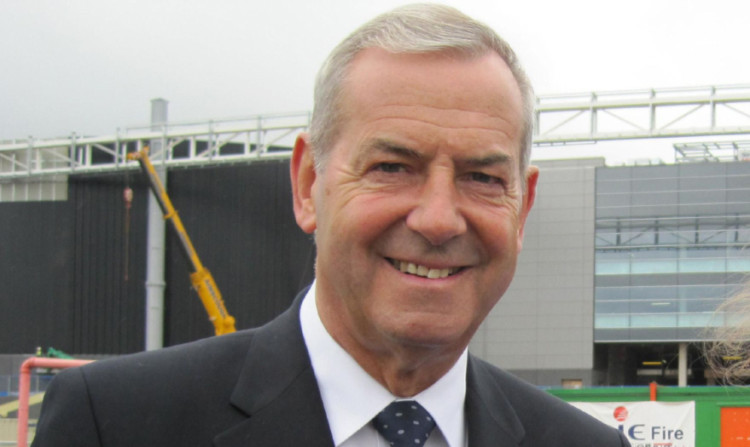Energy giant SSE revealed half-year losses of £115 million in its retail supply arm, as the group’s chairman insisted it was confronting a “trilemma” of challenges in energy security, decarbonisation and affordability.
The Perth-based utility which last month kicked off a round of price hikes by the so-called Big Six suppliers by announcing an average increase of 8% for customers said energy market conditions remained “difficult”, but stressed that it takes its responsibilities on investment and to customers seriously.
It defended its decision to increase its interim dividend ahead of inflation just days before the latest price rises begin to affect consumers. The 3.2% boost in the payout will see investors receive 26p per share.
SSE said adjusted pre-tax profits across the group as a whole fell 11.7% to £354m in the six months to September, despite climbing operating profits in its networks and wholesale divisions, and its energy services business.
Chairman Lord Smith of Kelvin said SSE ticked “all three boxes” required of a responsible utility.
“At times such as this, there is a great need for responsible companies which are committed to this country, committed to their customers and committed to financial discipline,” he said.
“The current debate about how to meet the UK’s energy needs at the lowest possible cost to consumers, while protecting the environment, will hopefully lead to decisions that contribute to the long-term economic, social and environmental well-being of the UK and Ireland.”
He hailed the group’s “operational and financial discipline”, which he said helps mitigate the impact of price rises on customers. But he also warned that key questions on the future of UK energy policy remain unanswered, with future investment decisions complicated as a result.
The firm which has significant offshore wind interests off Scotland’s east coast, and has signed a memorandum of understanding with Port of Dundee operator Forth Ports forecasts capital investment of around £1.5 billion next financial year, but has warned of uncertainty thereafter.
“In the years after that, however, there is greater uncertainty about the extent and shape of the programme, largely because of uncertainties around Electricity Market Reform and the implications of the apparent breakdown in the broad political consensus on energy,” SSE said.
Highlights in the six-months included an increase in output from gas and oil-fired power stations, though this was tempered by a fall in generation at coal-fired sites.
Output from renewable sources, including wind and hydro power, rose to around 25% of the firm’s total generation.
There was a fall in household gas and electricity usage, though SSE’s customer total fell by 60,000 to 9.41 million and the rate of gas pipe replacements undertaken by joint venture Scotia Gas Networks also dropped against the same period last year.
Total capital investment in the period totalled more than £800m up 13% on last year’s interim figure spread across networks, retail and generation assets, including the £127.6m acquisition of a 50% interest in the Sean gas field in the southern North Sea.
SSE said it remained “on course” to deliver a full-year dividend increase above the rate of inflation, in line with its strategy to deliver sustained “real” growth in the return payable to shareholders.
It justified the payouts by stressing that infrastructure investment would not be possible without support from its backers.
“SSE focuses on the dividend because the ultimate objective of investing capital in companies is to secure a cash return,” it said.
